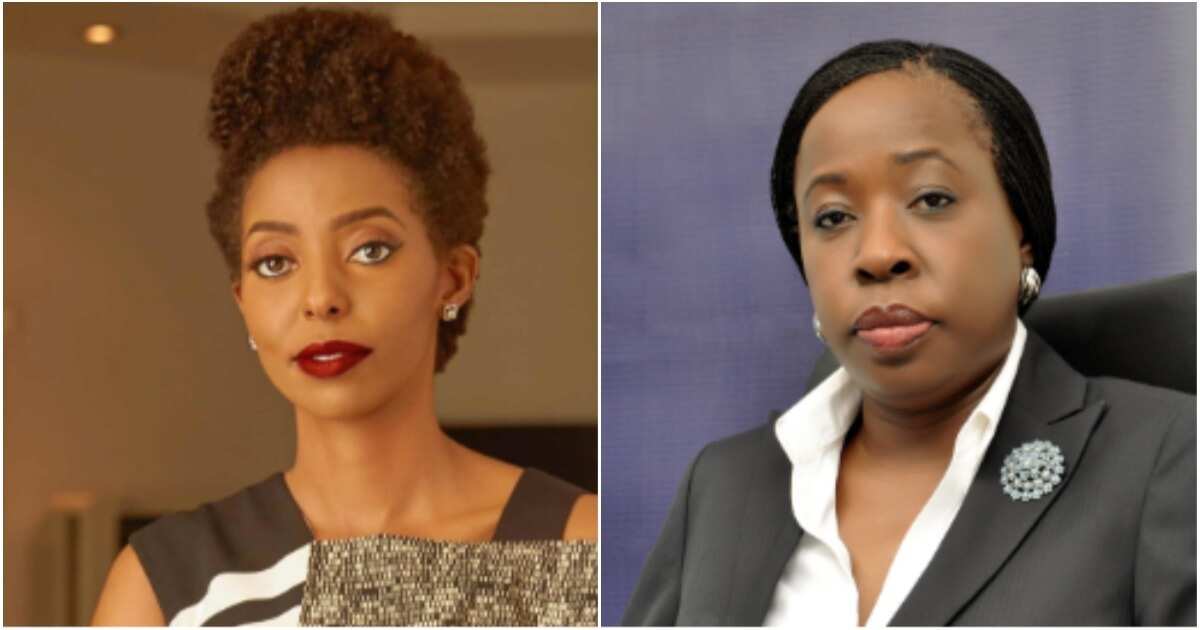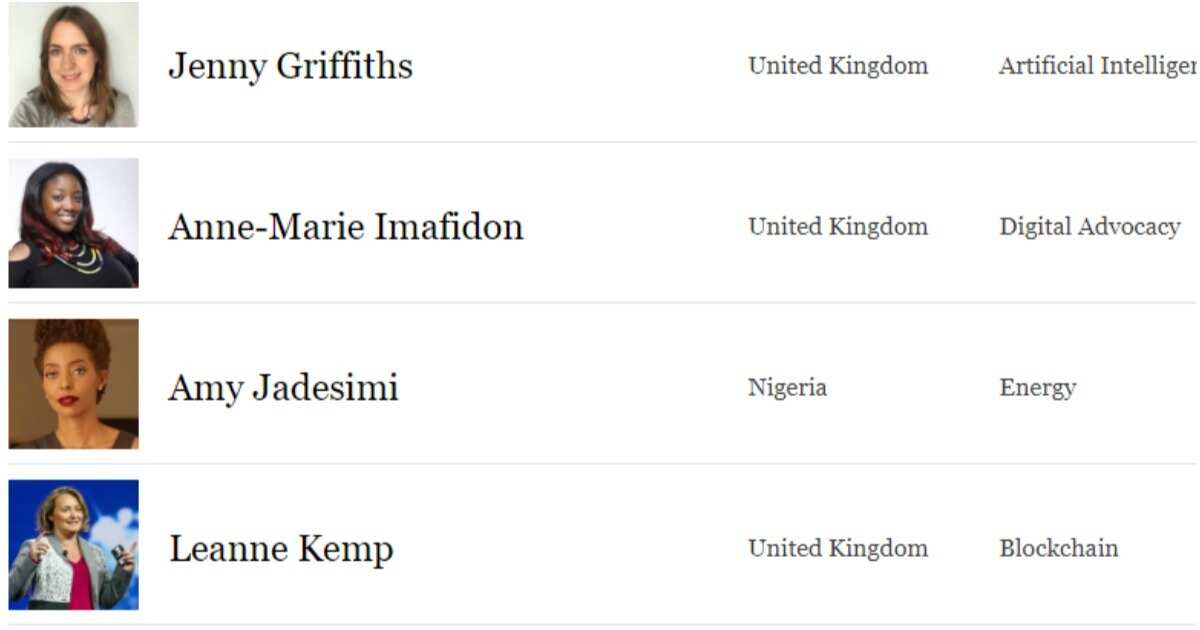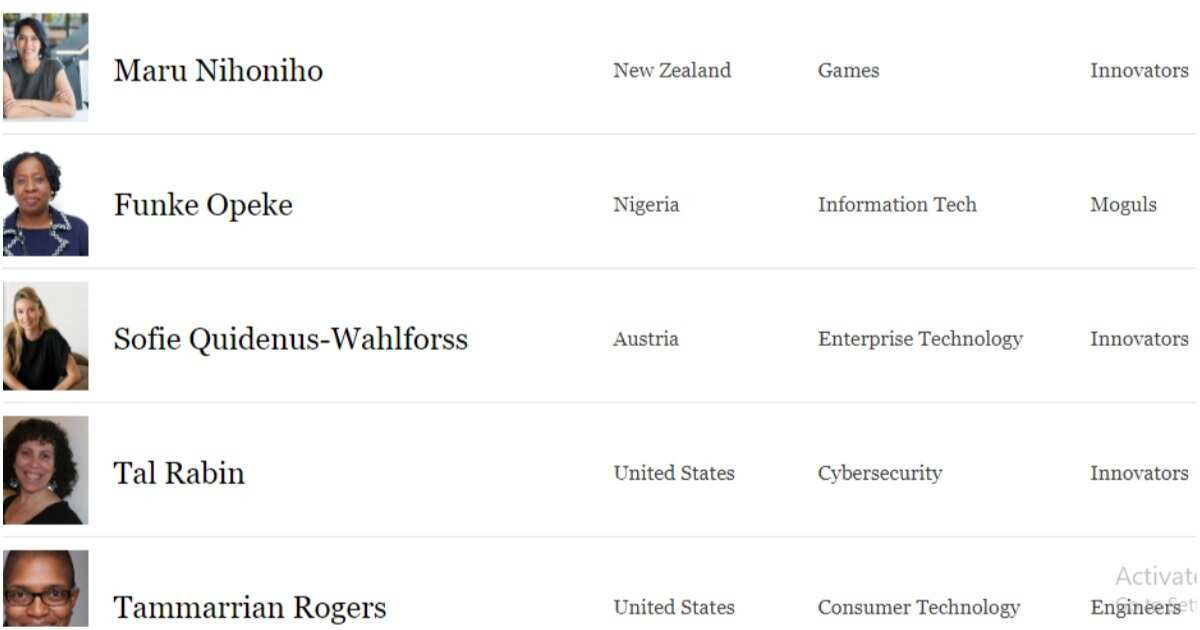Making their country proud! 2 Nigerian ladies are named among Forbes' 50 world's top women in technology
- Two Nigerian women have been listed among Forbes' 50 world's top women in technology
- The list was made up of female founders, moguls, engineers, innovators and warriors in the technology sector
- Forbes released the list on Wednesday, December 12.
Amy Jadesimi and Funke Opeke, two Nigerian women, have been named among the list of women who made Forbes' 50 world's top women in technology in 2018. The women were joined by a third African who is from Kenya.
According to Forbes, the The 2018 Inaugural Top 50 Women In Technology lists identify three generations of forward-thinking technologists leading more than a dozen tech sectors across the globe.
Legit.ng gathered a little details about the Nigerian women of technology who made the list. Amy Jadesimi is a Nigerian physician, businesswoman, corporate executive and entrepreneur who was born in 1976.

2 Nigerian among Forbes' 50 world's top women in technology UGC source: logisticsbusiness.com/businessamlive
Source: UGC
READ ALSO: 3 young Nigerians, others get Queen Elizabeth awards
The woman serves as the the chief executive officer of the Lagos Deep Offshore Logistics Base. The company is a privately owned state-of-the-art logistics and engineering facility in an industrial Free Zone, located on an island within the Port of Lagos, in Nigeria.
PAY ATTENTION: Read best news on Nigeria's #1 news app
Jadesimi attended the University of Oxford where she obtained bachelor of art in physiology and bachelor in both medicine and surgery before she later furthered her education at Stanford University where she obtained masters of business administration.

Source: Forbes.com
Source: UGC
PAY ATTENTION: Get your daily relationship tips and advice on Africa Love Aid group
Funke Opeke is a Nigerian electrical engineer and the founder of a Main Street Technologies. She attended Obafemi Awolowo University where she gained bachelors degree in electronics and later got her masters degree in electrical engineering at Columbia University.

Source: Forbes.com
Source: UGC
READ ALSO: NAIJ.com upgrades to Legit.ng: a letter from our Editor-in-Chief Bayo Olupohunda
Meanwhile, Legit.ng had earlier reported that eight Nigerians had made the list of Forbes 30 under 30 innovators and entrepreneurs. The eight young Nigerians made the list of due their works as influencers, innovators in their separate sectors.
NAIJ.com (naija.ng) -> Legit.ng We have upgraded to serve you better
Top 4 Most Influential Nigerians in the World: Nigerians in Top Positions - on Legit TV
Source: Legit.ng
from Nigeria News today & Breaking Naija news ▷ Read on LEGIT.NG 24/7 https://ift.tt/2rHjv4I
via EDUPEDIA24/7
Comments
Post a Comment